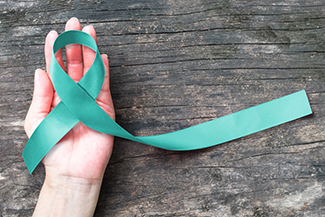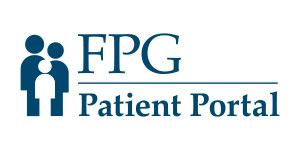The bad news: All women are at risk for cervical cancer. The good news: Cervical cancer is highly preventable, and when found early, it’s highly treatable. FPG Gynecologic Oncologist Beverly Long has information on cervical cancer screening and prevention.
Almost all cervical cancer is caused by human papillomavirus (HPV). Pap smears and HPV tests are used to screen for cervical cancer. While pap smear abnormalities and HPV are common, cervical cancer is rare. Understanding the results of your cervical cancer screening test can remove a lot of uncertainty and fear from those visits with your gynecologist.
Cervical cancer takes about 5 to 10 years to develop, so having regular screening allows us to detect it in its “pre-cancerous” stage. We know it’s tough to take time out of your busy schedule to see your gynecologist, but it is important!
The leading cause of cervical cancer is HPV, an extremely common virus that is passed from person to person during sexual activity. Most HPV strains have no noticeable symptoms — although some can cause genital warts — so these tests are the best way to detect HPV infection.
HPV is the most common sexually transmitted infection among adults and teenagers in the US. Proven to be safe and effective, vaccination is the best way to prevent HPV and protect against the diseases caused by HPV, including cervical cancer.
Almost every sexually active person will get HPV at some point in their lifetime. Most HPV infections clear up on their own within 6 to 18 months; however, in some women, HPV sticks around for years and can cause pre-cancerous changes (dysplasia) or cancer. That’s why we test for HPV during gynecologic exams.
Women who have not had regular pap smears/HPV testing are at highest risk for HPV infection and developing cervical cancer.
The best way to avoid HPV is to get vaccinated: The HPV vaccine is recommended for everyone age 9 to 45 — but it’s most effective when it’s received before becoming sexually active.
The U.S. Centers for Disease Prevention and Control (CDC) recommends vaccinating kids for HPV when they are 11 or 12 years old, as does the Advisory Committee on Immunization Practices (ACIP).
The recommendation is in part driven by the goal of vaccinating youth against HPV before they are sexually active and at increased risk for HPV, and also because younger people typically mount a better immune response to the vaccine. You need only 2 doses of the vaccine if given before age 15, but you’ll need 3, if you’re older.
The HPV vaccine is FDA-approved up to age 45, and some early data suggests it may help your body clear HPV-related pre-cancerous changes. I recommend vaccination in everyone up to age 45 — especially those who have high-grade dysplasia. The Gardasil vaccine protects against 9 different strains of HPV, so even if you’ve tested HPV positive in the past, the vaccine will protect you against other strains.
Side effects are uncommon, but some people have pain, redness or swelling at the injection site, fever, a headache or flu-like reaction after the vaccine. Only 0.04% of people who have the vaccine have any side effects, and virtually all of these reactions are self-limited or minor. Fainting occurs rarely after vaccination, but we recommend monitoring for 15 minutes after the vaccine is given just to make sure fainting does not occur.
Multiple studies show no association between the HPV vaccine and auto-immune or neurologic conditions. Some parents worry that HPV vaccination will cause their children to think it’s safe to have sex earlier than they otherwise would. Fortunately, multiple studies have found no increase in sexual activity after the HPV vaccination.
If you have questions about HPV vaccination, talk to your pediatrician, gynecologist or local health department.

Board-certified gynecologic oncologist Beverly Long, MD serves patients at FPG’s GYN Oncology and Maternal-Fetal Medicine at Hillview office in Sarasota. She is currently accepting new patients. Please call (941) 917-8383 for more information.


